Do Humidifiers Help With Nosebleeds?
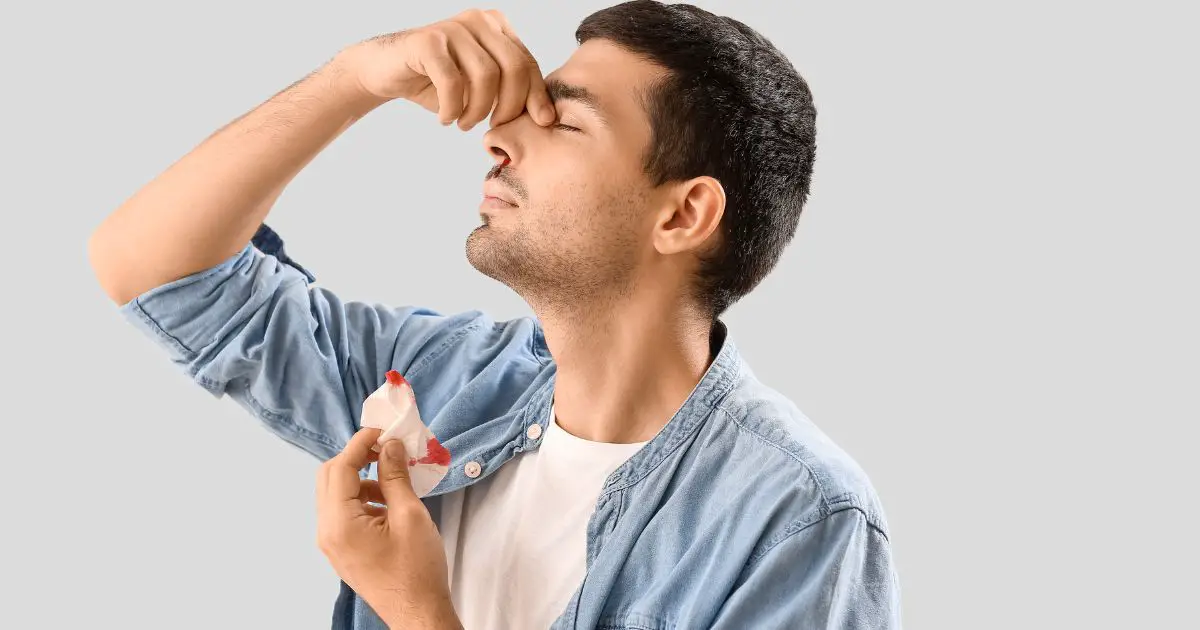
Nosebleeds are common in children and adults. According to a study, a staggering 60% of Americans have experienced a nosebleed at least once in their lives. Despite rarely being fatal, they can be uncomfortable.
A nosebleed will occur when a nasal membrane cracks in your nasal passage. Nosebleeds are rampant during the cold winter months when dry, cold air irritates the nasal membrane. Frequent nosebleeds could also indicate a health problem that you should talk to your doctor about.
Having a humidifier can help ease the effects and frequency of nosebleeds. This article will tell you how.
Causes of Nosebleeds
As mentioned earlier, cold and dry weather are common causes of nosebleeds. However, other factors can cause them, including:
● Allergies
● Excessive sneezing caused by the common cold
● A minor nose injury
● Excessive nose-picking
● Sinus infection
● Blowing your nose too hard
● High altitude
● A deviated septum
These are usually classified as “anterior nosebleeds,” starting from the septum’s lower part. Anterior nosebleeds are the most common type and can be handled easily.
On the other hand, posterior nosebleeds start deep in the nose and run down the back of the throat. These are far less common than the anterior and will require medical attention. Some causes of posterior nosebleeds include:
● Major trauma or blow to the nose or face
● Hardened arteries
● Recent nasal surgery
● Anticoagulants or aspirin
● Hemophilia
● A broken nose
How a Humidifier Can Help with Nosebleeds
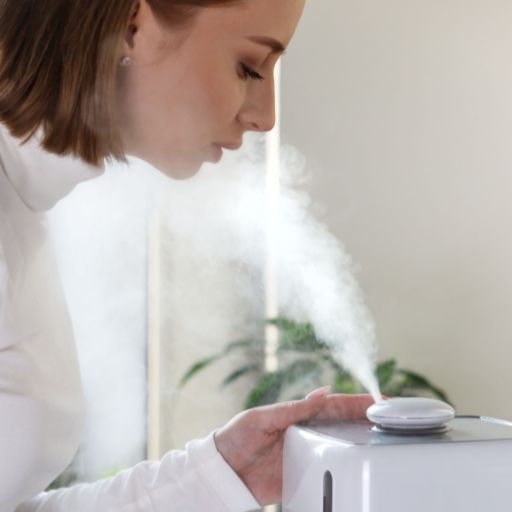
A humidifier adds moisture to the air, which helps reduce dryness and irritation in the nose. A humidifier is made up of a tank that holds water that will be released into the air. Moreover, it’s equipped with a fan to ensure moisture covers the whole room. The humidity of the atmosphere affects how much water we evaporate off our skin.
A humidifier can thus help with nosebleeds by providing humidity to your nasal passage. Humidity levels ranging from 30% to 50% are ideal for the skin. Therefore, having a humidifier that can raise the humidity to optimum levels will be beneficial. If the humidity is optimum, nosebleeds might not happen, or happen less often.
This means that if dry air is responsible for your nosebleeds, a humidifier will help. Humid sinuses will prevent cracks in your nasal membrane. Also, bacteria and viruses find it hard to pass through a moist nasal passage.
The Best Type of Humidifier for Nosebleeds
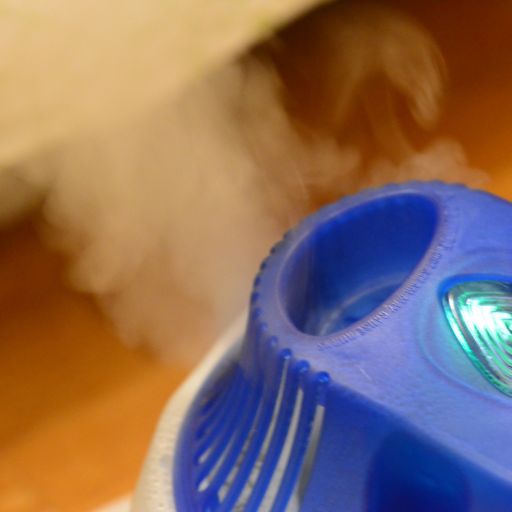
Many have heard about the age-long debate about cool mist and warm mist humidifiers. While they both have their pros and cons, one trumps the other. Both humidifiers restore humidity to the air, which helps with dry lips, skin, and nose.
Firstly, the cool mist humidifier releases room temperature mist into the atmosphere. This method is either evaporative or ultrasonic. The first one blows air through a filter with the help of a fan, which makes the water evaporate. The latter makes use of ultrasonic vibration to disperse cool air.
Conversely, the warm mist humidifier uses a method that boils water before releasing it into the air as mist. Many consider them a safer option than the cool mist humidifier because the boiling process kills germs and bacteria. This heat, however, can lead to accidental burns on the skin. The cool mist humidifier doesn’t heat the water, and it needs to be cleaned often to keep bacteria from getting into the air.
A cool mist humidifier is easier to inhale as the body can easily take in cool air than warm air. It consumes less power than warm mist and is excellent for year-round use as it does not overheat. However, it tends to be noisier than the warm mist.
This shows that the cool mist humidifier is the best humidifier to help with nosebleeds. An ultrasonic humidifier has a built-in sensor that prevents over-humidifying the air. If there is too much moisture in the air, mold could grow, worsening allergy symptoms.
Dehumidifier for Nosebleeds
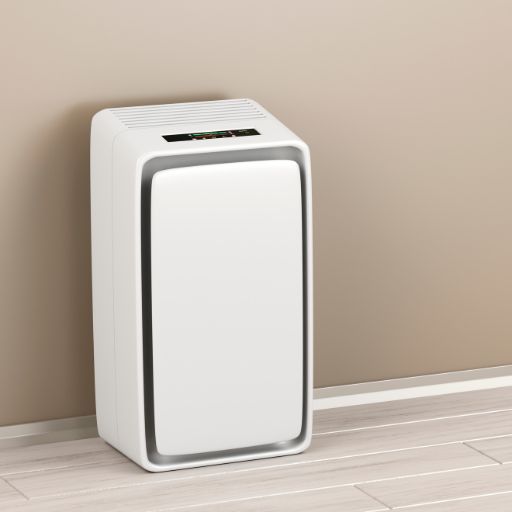
Dry air, especially during winter, is a leading cause of nosebleeds. A dehumidifier works by drying out the air in the atmosphere, thus reducing humidity. It uses a refrigeration device to dry the air. A fan pulls air through the device and subjects the water in the air to thermal shock. The water then falls as droplets into a tank in the dehumidifier. Alternatively, if you use a dehumidifier to reduce extreme humidity, it may help keep you cool.
A dehumidifier, however, may not help your nosebleed, especially if the cause is dry air.
What Humidity Level Causes Nosebleeds?
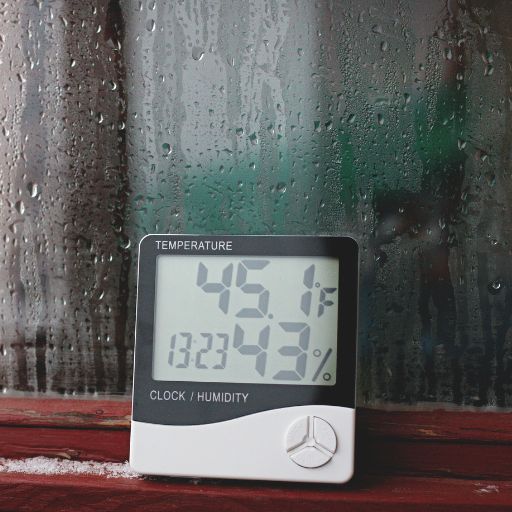
Humans can tolerate humidity levels ranging from 30% to 70% in most cases. The ideal level, on the other hand, is between 30% and 50%. It is moderately humid when the humidity is above 70%, and when it is above 90%, it is highly humid. Mold and mildew growth is high at these extreme levels. Additionally, wood may warp, and structural damage may occur in a highly humid house.
Levels of less than 30% are considered excessively dry. Most of the time, this will cause the nasal passages to dry out, making nosebleeds more likely.
If the weather changes quickly, you can use a humidifier or a dehumidifier, depending on what you need, to keep the humidity level in your home stable.
Do Air Purifiers Help with Nosebleeds?
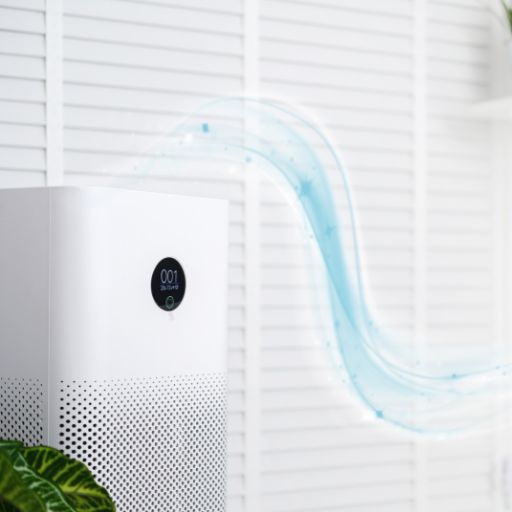
Pollutants in the air get caught by air purifiers, which then let out clean air. This mechanism usually occurs in cycles. As a result, this can cause the air in a room to become very dry, thus leading to nosebleeds. You can avoid this if you put the purifier in the right place to control humidity. If you place an air purifier too close, you will get cool, dry air. You may wake up with cracked lips and a dried-out nasal passage, which can trigger a nosebleed.
To fix this, put the air purifier in the best place and consider getting a humidifier or dehumidifier to keep the humidity level even.
Frequently Asked Questions About Humidifiers and Nosebleeds
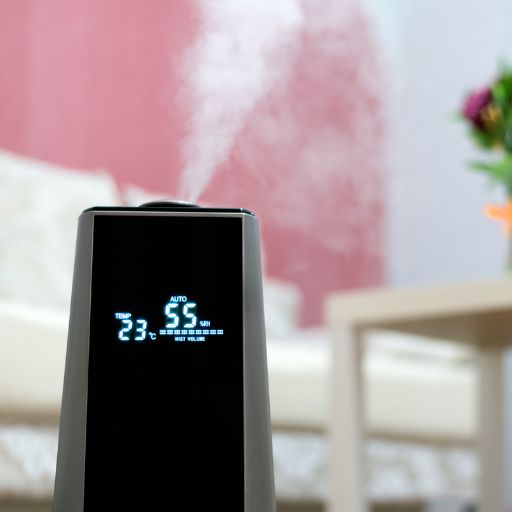
Can humidity cause nosebleeds?
Dry air is one of the most common triggers for nosebleeds. Dry air happens if you live in a hot, dry climate or have had the heat on for a long time. As much as it is necessary to keep warm in the winter, we also advise that you get a humidifier. This will help to restore the perfect levels of humidity in your home.
Is a warm or cool mist humidifier best for nosebleeds?
We recommend a cool mist humidifier, preferably a cool mist ultrasonic humidifier. A cool mist humidifier is easier to inhale and consumes less power. Most ultrasonic humidifiers also have a built-in sensor that automatically shuts off when humidity is too high.
Can you sleep with a humidifier next to your bed?
A humidifier should be placed at least 3 feet away from your bed. This ensures a safe space between you and the humidifier, to aid in the safe circulation of air. Also a vaporizer or warm mist humidifier poses a risk of burns if knocked over or bumped during the night.
Make Sure There is No Underlying Cause for Your Nosebleeds
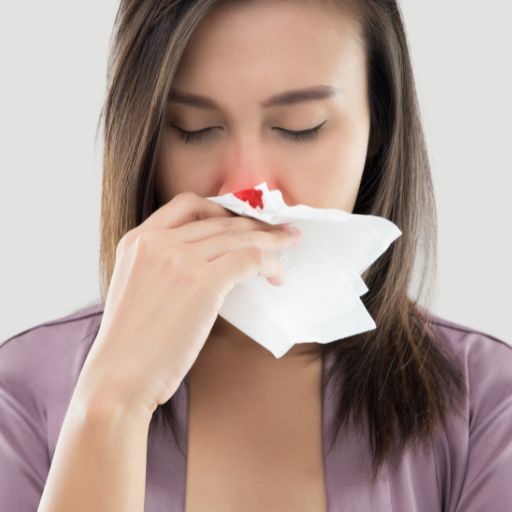
A host of factors can bring on nosebleeds. But dry air is the most common culprit. Your nasal membranes may break and bleed due to dry air drying out your mucous membranes. However, a humidifier can help restore humidity to your room or living space.
A humidifier adds moisture to the air, which raises the humidity and keeps the nasal passages moist. Maintaining humidity levels between 30% and 50% is ideal for comfort. Levels below thirty percent are too low and can eventually lead to nosebleeds.
If the air is already dry, a dehumidifier might not help with nosebleeds because it will lower the humidity. An air purifier, if wrongly used, can also trigger nosebleeds. Thus, a cool mist ultrasonic humidifier is my choice of humidifier for the job.


